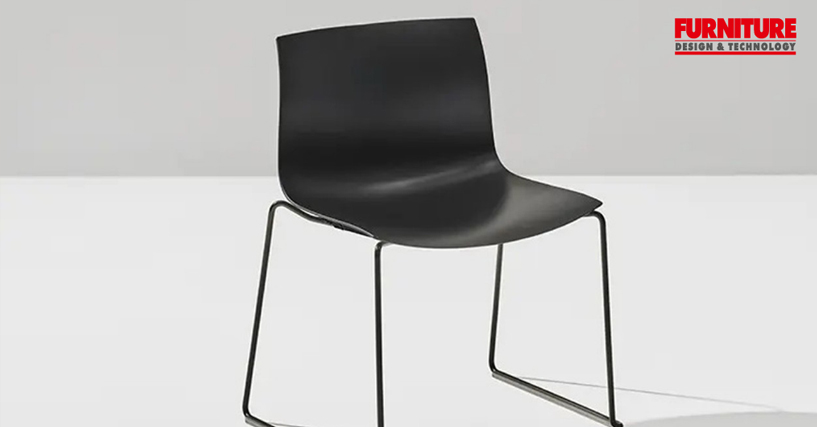
As sustainability increasingly saturates various facets of design and production, the term sustainable furniture encompasses a spectrum of approaches. These range from utilizing recycled materials such as metal or post-consumer recycled plastics to employing new, biodegradable substances like wood, cork and paper. While both avenues represent commendable efforts, they often fall short in addressing the issue of accumulating material waste inherent in the manufacturing process. However, innovative approaches are emerging to repurpose these by-products, exemplified by a strikingly minimalist office chair crafted from multiple sheets of paper.
Constructed by Catifa Carta, this chair transcends the conventional notion of paper-made items, which lack the structural integrity required for seating. Instead, it leverages PaperShell, a material developed by a Swedish startup, which ingeniously reconstitutes wood-derived paper into a sturdy, wood-like substance. Utilizing wood by-products such as sawdust and chips, along with waste wood like fallen branches, PaperShell emerges as a versatile alternative to conventional materials like wood, plastic, or fiber composites.
The Catifa Carta chair embodies this innovation, compressing numerous PaperShell sheets into a composite that is then molded into an elegant form atop slender metal legs. Unlike its predecessors, this sustainable iteration retains the raw, unpainted essence of its material, showcasing its natural imperfections and bestowing each chair with a unique character akin to the cherished grains found in wood.
Even at the end of its lifecycle, it continues to contribute to environmental stewardship. PaperShell can be recycled into new products or transformed into biochar, enriching soil while sequestering carbon dioxide. This holistic approach underscores a circular lifecycle that begins and concludes with Earth's nourishment. Arper, the visionary behind the Catifa Carta, facilitates this process by designing the chair for easy disassembly, ensuring seamless recycling or repurposing. Beyond its ecological significance, the chair stands as a testament to functional design, providing a comfortable and ergonomic seating solution.
While concerns may arise regarding its suitability for prolonged use in work settings, the chair’s thoughtful design and the narrative of its material journey evoke a sense of satisfaction and connection with nature, elevating it beyond mere furniture to a symbol of sustainable ingenuity and responsible consumption.
Image credit: Arper
Furniture Design India and the magazine FURNITURE DESIGN & TECHNOLOGY (FDT magazine) are from the trusted 22-year-old media house of SURFACES REPORTER and PLY REPORTER.
FDT is a B2B monthly bilingual magazine from India that shares the pulse of the furniture business in India and connects the manufacturers, OEMS, product designers, architects, showrooms, designers and dealers.
Read More© 2026 Furniture Design and Technologies.. All Rights Reserved. Developed by eyeQ Advertising